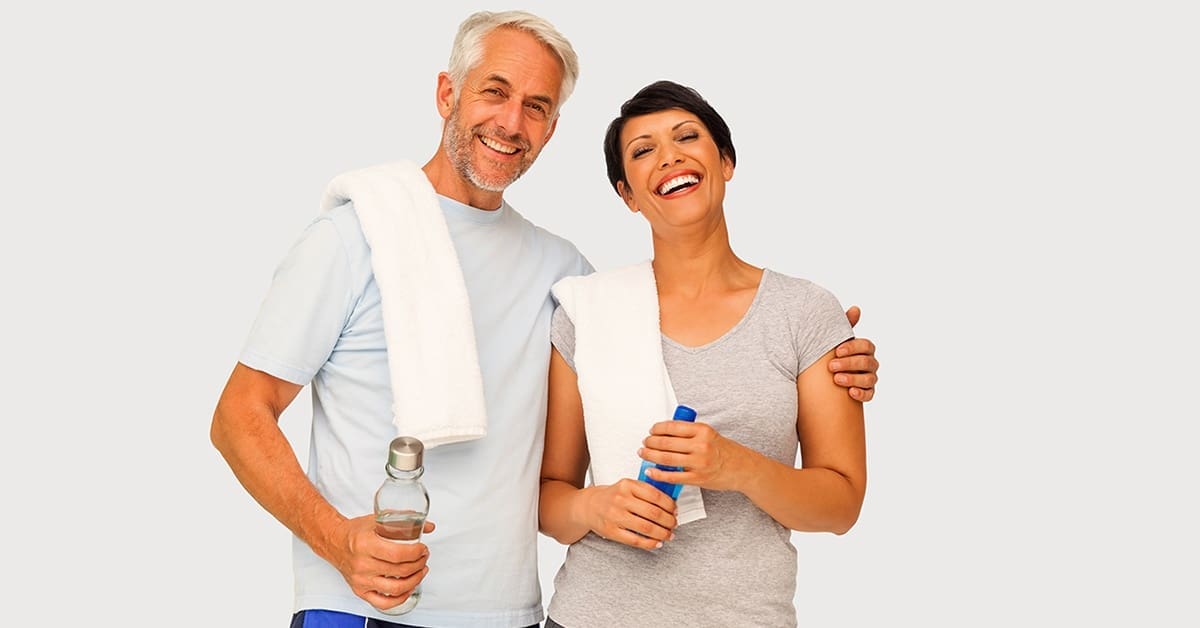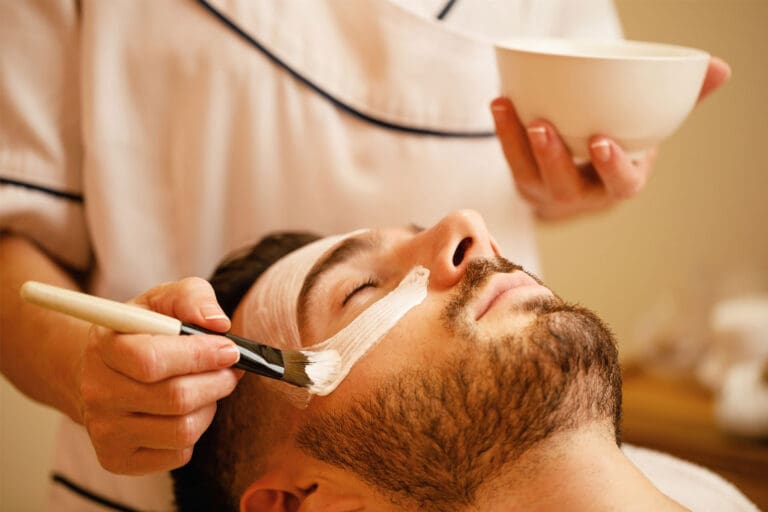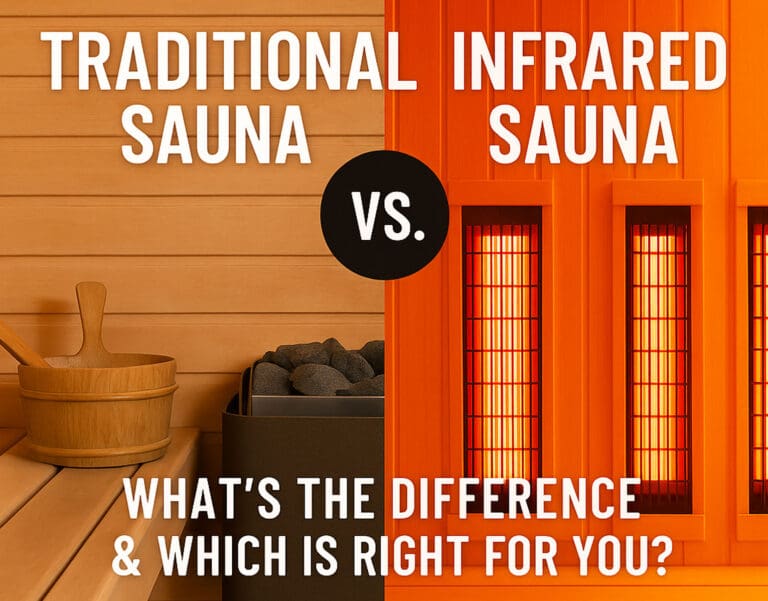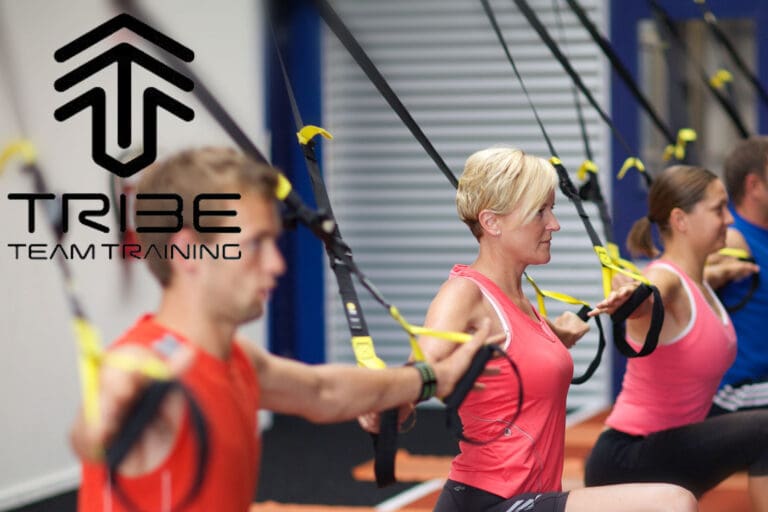
You’ve heard it once or twice before….Drink. More. Water. Drinking water is one of the most important aspects of staying healthy, especially for seniors. Personal Trainers provide regular reminders during senior fitness sessions, water fountains are available everywhere, Group Exercise Instructors include water breaks in EVERY class, fancy water bottles are sold in practically every store you step foot into, and health care providers often ask if we are drinking enough water during the day. But why does this seem like an insurmountable task at times and how do we really know if we are getting enough? Since dehydration can be a serious problem for seniors, I reached out to our Cornerstone Wellness Coaches for the answers.
Why do seniors get dehydrated?
Dehydration in seniors is often due partly to inadequate water intake, but can happen for many other reasons as well including diarrhea, excessive sweating, loss of blood, diseases such as diabetes, as well as a side effects of prescribed medication like diuretics. Aging itself makes people less aware of thirst and gradually lowers the body’s ability to regulate its fluid balance.
How much water should a senior male and female drink?
The amount of water that someone needs to drink varies depending on a lot of factors, such as size, activity level, climate, etc. However a general rule of thumb for seniors is to get at least five 8-ounce glasses of water per day. If you’re active or are outside during warmer weather you will probably need slightly more than 5 glasses. There have actually been studies done that show that seniors who drink 5 glasses of water experience lower rates of fatal coronary heart disease.
What are signs of early dehydration?
Aging causes the body’s fluid reserves to become smaller, and seniors often have a reduced sense of thirst. The most common signs and symptoms of dehydration include persistent fatigue, lethargy, muscle weakness or cramps, headaches, dizziness, nausea, forgetfulness, confusion, deep rapid breathing, or an increased heart rate.
Besides water, what are good hydrators?
 Water is definitely the best hydrator, but there are plenty of other ways to boost hydration in a delicious way.
Water is definitely the best hydrator, but there are plenty of other ways to boost hydration in a delicious way.
- Add fruit to your water. This will make your water more flavorful and also give you benefits from whatever fruit you choose – vitamins, antioxidants, and nutrients!
- Make a smoothie with organic greens, fruit, and coconut water! Coconut water is low in carbohydrates, but rich in potassium and is a great hydrator.
- Key vitamins and even salt get depleted when our bodies are dehydrated and can’t be absorbed from water alone, so make sure you eat lots of hydrating organic fruits and vegetables. Watermelon contains salt, calcium, and magnesium. Strawberries, baby carrots, and tomatoes are all high in water content. While celery, spinach, and cucumber will hydrate and give you a boost of essential vitamins and minerals like Vitamin K, B6, potassium, Vitamin E, and iron to name a few.
What can dehydration lead to?
Dehydration can lead to life-threatening complications including heat exhaustion, heat cramps, heatstroke, seizures due to electrolyte loss, low blood volume, kidney failure, coma or death.
How does dehydration happen?
It occurs when a person loses more water than they take in. Dehydration in Seniors is especially common for a number of reasons:
 Medications:
Medications:
It’s not uncommon for seniors to be on several medications at any given time. Some of these may be diuretic, while others may cause patients to sweat more.
Decreased Thirst:
A person’s sense of thirst becomes less acute as they age. In addition, seniors may have a harder time getting up to get a drink when they’re thirsty, or they may rely on caregivers who can’t sense that they need fluids.
Decreased Kidney Function:
As we age our bodies lose kidney function and are less able to conserve fluid (this is progressive from around the age of 50, but becomes more acute and noticeable over the age of 70).
Illness:
Vomiting and/or diarrhea can quickly cause elderly dehydration.
 Are there any foods with a high water content?
Are there any foods with a high water content?
Yes, definitely! Here are some foods that have a water content of 90% or more: Cucumber, watermelon, iceberg lettuce, celery, radishes, tomatoes, bell peppers (all colors), cauliflower, spinach, strawberries, broccoli, grapefruit, baby carrots, cantaloupe, eggplant, and zucchini.
I am so busy with daily activities I forget to drink water. What are some ideas to remind me?
 There are lots of fun and easy ways for seniors to remember to drink water.
There are lots of fun and easy ways for seniors to remember to drink water.
- Start your day with a glass of water. Set a cup of water on your nightstand and/or on your bathroom sink and drink it as soon as you wake up. This will help you to start hydrated, flush out toxins and start your digestion for the day.
- Set an alarm on your phone or download an app that tracks hydration to remind you to drink water. If you don’t like use a smartphone, stick a post it note somewhere you will see it often to remind you to drink.
- Coffee and alcohol are dehydrating. Make a pledge to drink a glass of water one-to-one, for every cup of coffee or alcoholic beverage you consume.
- Make water a part of every meal. Fill a glass and drink it as a part of your meal and always order a glass of water at a restaurant. If it’s there, you are more likely to sip on it throughout your meal.
- Add fizz and flavor. If you find water to be boring, try seltzer or sparkling water infused with fresh fruit or a splash of 100% fruit juice to add fun and flavor. If you look forward to it, you are more likely to drink it.
- Invest in a new water bottle (or two!) and keep them around the house and bring with you everywhere you go. Some new bottles have lines on them so that you know exactly how much you should have sipped by different points throughout the day.
Cheers! Salute! L’chaim! Skol! Prost! Na zdowie! Salud! Sei gesund!
Here’s to YOU!



